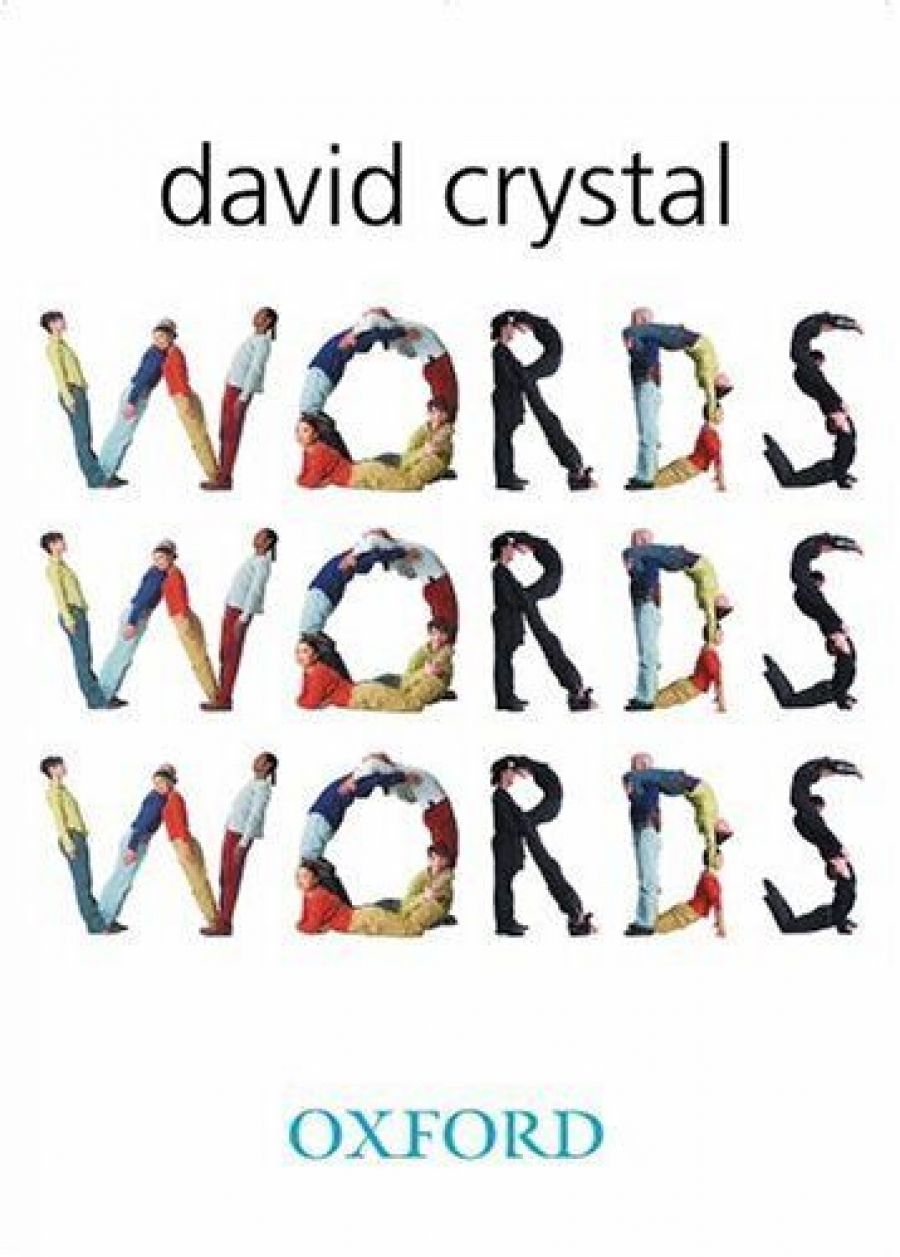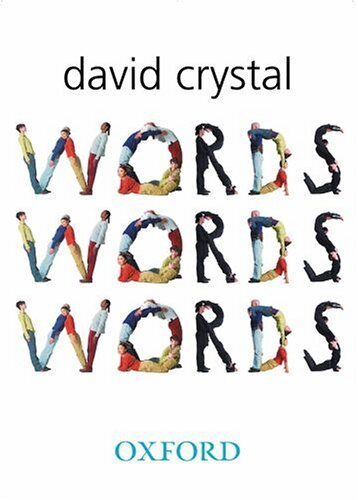
- Free Article: No
- Contents Category: Language
- Review Article: Yes
- Article Title: Miss Belinda Blurb
- Online Only: No
- Custom Highlight Text:
David Crystal has written numerous books on language – ‘over 100’ proclaims the cover blurb. In the chapter titled ‘Wordbirths’, Crystal muses on how rare it is to know who created a new word. In this regard, at the Australian National Dictionary Centre we have been tracing the term barbecue stopper, which is first recorded in the Sydney Morning Herald, 27 October 2001: ‘That’s one reason he [John Howard] will talk about improving the balance between work and family, a topic he describes as a “barbecue stopper” because it engenders so much conversation whenever people get together.’ Did the prime minister invent the term, or was it the creation of his speechwriter?
- Book 1 Title: Words, Words, Words
- Book 1 Biblio: OUP, $32.95 hb, 216 pp
- Book 1 Cover Small (400 x 600):

- Book 1 Cover (800 x 1200):

Crystal explains that in the case of the term blurb we do know the inventor and the time of the invention. In 1907 the American author Gelett Burgess was unhappy with the publisher’s jacket for a special edition of his book Are You a Bromide? Crystal writes: ‘The practice seen in contemporary lurid novels was a much better idea. There was always a damsel posing on the front cover. So he decided to draw one. He sketched out a buxom blonde on one of the jackets, and labelled her Miss Belinda Blurb. The name caught on. Any excessive testimonial for a book, on front or back covers, was soon being called a blurb.’ Crystal’s book is about the history and structure of English words, and the story of the creation of the term blurb is typical of the entertaining anecdotes he uses to lead his readers into quite complex issues.
Crystal’s six short sentences discussing blurb can also be used to illustrate some of the central concerns of the book. In the English lexicon, the basic building words, such as prepositions and pronouns, are English, dating from the Old English period (pre-1066). Of the eleven nouns in Crystal’s sentences, two are English (book, name), seven are directly from French (blonde, cover, damsel, jacket, miss, practice, testimonial), one is directly from Greek (idea), and one is from Italian (novel). The adjectives are more evenly divided between native and foreign, with four being English, two French, and two Latin. The verbs are more complex. Three are English (be, draw, see), four are French (catch, decide, label, pose), and one (call) is Old Norse (indicated by the hard k; the corresponding Old English verb was pronounced ‘chall’). Crystal’s final verb, sketch, with its hard sk, looks as if it might come from the Vikings too (compare skin, skirt, sky), but it is from Italian schizzo (ultimately from Greek), and found its way directly into English via Dutch or German. Crystal concludes that only about twenty per cent of English words go back to Old English, with the rest borrowed from numerous languages over the centuries. While it was political power (of Britain in the nineteenth century, and of the United States in the twentieth century) that was causal in making English the world language, Crystal argues that it is the richness of English that has also given it power, as in the subtle distinctions available in the use of kingly (English), royal (French) and regal (Latin).
How many English words are there? There are about 500,000 words in the Oxford English Dictionary (OED), but when all the words from regional Englishes are added the total is about one million. If acronyms, proper names and technical names (such as genera and species) are added, the total is millions. How many words does the average speaker use or know? Crystal’s figures are surprisingly high. He estimates that the average English speaker has an active vocabulary (i.e., the words actually used) of 35,000 and a passive vocabulary (i.e., the words actually understood) of 50,000. For an educated speaker, the figure is close to 100,000.
Crystal is a linguistic descriptivist rather than a presciptivist, and he is properly scathing of those who complain about a decline in language standards. He points out that such whingeing began with the English monk John of Trevisa in the fourteenth century. Today, the chorus of whingeing Henny Pennies seems unstoppable ― woe, woe, the sky of ordered and stable linguistic correctness is crumbling and is about to fall on our heads! But evidence of the equally unstoppable process of language change is also present in those six Crystal sentences I’ve mentioned. How many realise that buxom originally meant ‘obedient, humble’, and that lurid originally meant ‘pale in colour’? Even blurb, one hundred years on, does not necessarily mean an ‘excessive testimonial’. Crystal cautions those who would mock the greengrocer’s famous apostrophe (potato’s $2 kg) – Dr Johnson would have placed an apostrophe here because potato ends in a pronounced vowel and potatos would seem to rhyme with toss.
In Crystal’s blurb-sentences, the double -ll- in labelled and the -c- spelling in practice underline the fact that this is a British publication. In the United States, the spellings would have been labeled and practise. Crystal includes a good discussion of the varieties of Englishes across the world, but one of his forays into Australian English illustrates how difficult it is to discuss such Englishes from outside the cultures that speak them. In a discussion of distinctive national suffixes, Crystal writes: ‘In Australia, -eroo gives a word a more familiar resonance, as in crackeroo and sockeroo.’ I must confess that I have never heard crackeroo; nor has any dictionary that I have consulted. Sockeroo appears in OED as originally US slang, meaning ‘something with an overwhelming impact’. Does Crystal perhaps mean socceroo?
This is a minor blemish in a book that speaks to word lovers, and that explores both the seriousness and the fun of words. There are excellent appendices that offer ideas about how readers can further develop their interest in words, including the URLs for some very useful Internet sites.


Comments powered by CComment